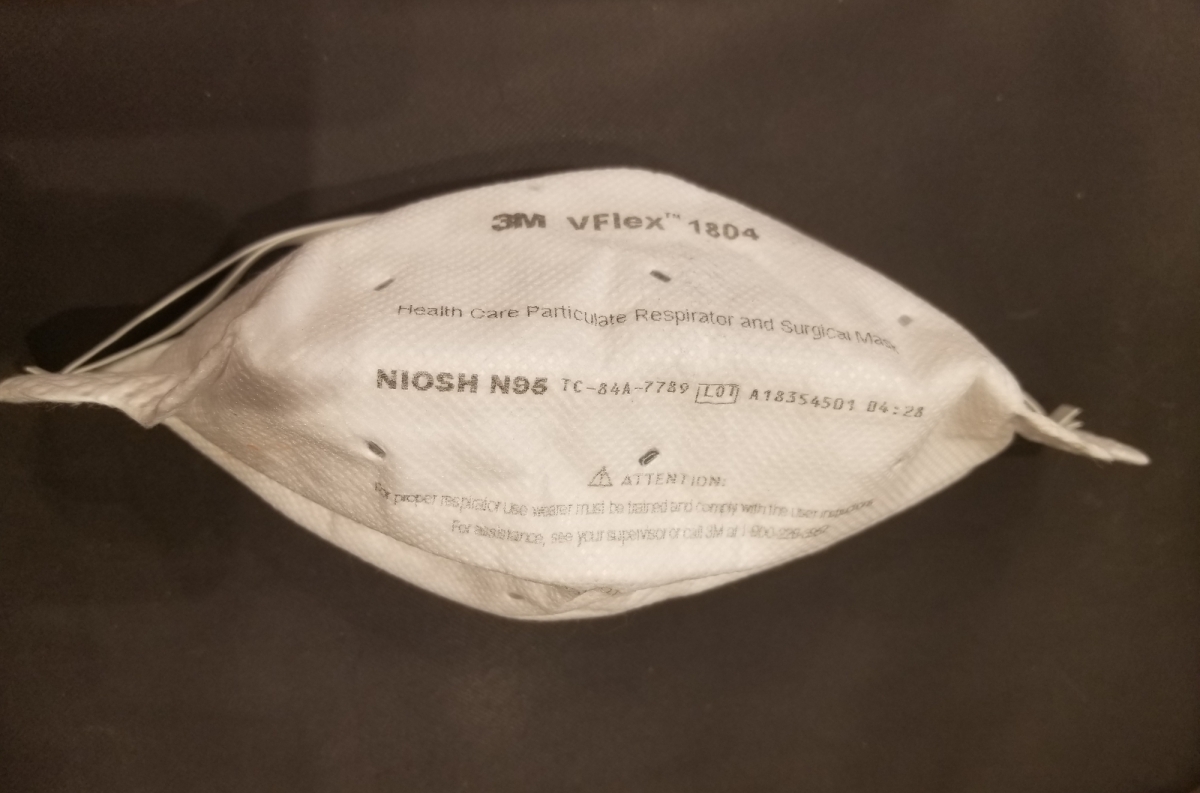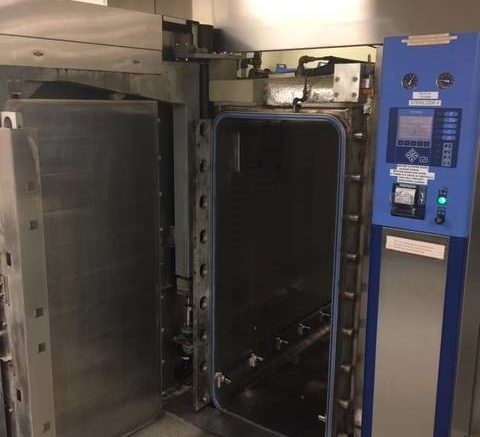
University of Manitoba clinician-scientists and their research partners at Canada’s National Microbiology Laboratory (NML) have identified effective standard hospital sterilization techniques that may enable in-demand N95 masks to be sterilized up to 10 times for reuse in clinical settings.
The research, conducted by researchers at both Health Sciences Centre Winnipeg (HSC) and the NML in Winnipeg, was performed by a team of five researchers led by Dr. Anand Kumar, a UM researcher and critical-care physician at HSC, in response to worldwide concerns about the supply of N95 masks.
“Medical masks are used by healthcare workers, with the N95 providing the best protection against tiny aerosol particles that carry the novel coronavirus. At the start of the pandemic, it was clear we were going to be facing dramatically heavy demands for the N95s,” said lead author Kumar, professor of medicine (critical care and infectious diseases), medical microbiology/infectious diseases and pharmacology/therapeutics at the University of Manitoba. “Our team wanted to explore how different brands and models of N95s responded to standard hospital sterilization technologies in an attempt to identify safe options for their reuse in the event of supply shortages.”
In mid-March, HSC physicians/faculty members at the UM’s Max Rady College of Medicine, worked with NML scientists to test four different types of N95 masks using four different sterilization methods: repeated cycles of standard autoclaving; ethylene oxide gassing; ionized hydrogen peroxide (iHP) fogging; and vaporized hydrogen peroxide (VHP) treatment.
In addition, the ability of all four decontamination techniques to totally eliminate viruses on the masks was tested.
Afterwards, these N95s were visually and tactilely assessed for structural integrity and underwent quantitative fit testing to assess functional integrity.
“Our results demonstrate that the assessed decontamination methods were highly effective in sterilizing all four contaminated N95 models mask types. No viable virus was found on any intentionally-contaminated mask following any of the decontamination procedures,” said Kumar, noting that in some cases the researchers used a non-pathogenic virus in place of SARS-CoV-2 virus (which causes COVID-19) and the study was not performed on masks worn by healthcare workers. Further testing has been carried out at the NML, which used the SARS-CoV-2 virus to contaminate the masks, and results are expected in the near future.
Kumar’s initial study results indicated several of the decontamination methods could be used repeatedly without degrading the masks’ effectiveness so that the use of individual N95 masks could potentially be extended several-fold.
Kumar pointed to two sterilization methods which showed no loss of filtering function after multiple cleanings. However, one method, the vaporized hydrogen peroxide, is not widely available in North America.
“I’m particularly excited by the fact that autoclaving works on most masks because unlike the other techniques, it should be available at every established hospital in the world, including in the most poorly resourced countries,” he said, pointing to the commonly-used, pleated N95 masks as the type of mask that tolerates undergoing this sterilization process.
“We successfully decontaminated these pleated, fabric N95 masks up to 10 times using autoclaving,” he said, noting autoclaving equipment relies on high heat and steam to disinfect and sterilize.
The team’s goal is to share their research findings so that jurisdictions can assess the options that will enable their health-care workers to be appropriately protected.
“Many institutions in highly-affected regions of the world are running out of these masks and others are rationing so that health-care workers must make use of the same masks for long periods which can lead to mask failure and increased risk to the worker,” said Kumar, noting the study has not yet undergone peer-review or been published in a medical journal.
The full pre-review paper is available HERE.
Source: University of Manitoba

Be the first to comment on "UM Researcher Leads Study on Effective N95 Mask Decontamination During COVID-19 Crisis"